With more people working from home, optimizing your home office setup is key to maintaining productivity. This presentation provides seventeen ways to enhance your home office, covering everything from the arrangement of your desk to the tech tools that can help you work more efficiently.
1. Choose The Right Desk And Chair

Investing in a good-quality desk and chair is crucial for creating a comfortable and ergonomic workspace. Your desk should have enough space to accommodate your computer, accessories, and any other materials you need regularly. An ergonomic chair that supports your back and promotes good posture can help prevent discomfort and long-term health issues.
When selecting a chair, look for adjustable features such as seat height, backrest angle, and armrests. This customization ensures that the chair can be tailored to your specific needs, reducing strain on your body. A sturdy, spacious desk can also help keep your workspace organized, boosting your productivity.
2. Maximize Natural Light

Position your desk near a window to take advantage of natural light. Natural light can improve your mood and energy levels, making you more productive throughout the day. It also helps reduce eye strain compared to artificial lighting.
If natural light is limited, consider using daylight-simulating bulbs. These can mimic natural light and provide similar benefits. Ensuring your workspace is well-lit can enhance your focus and overall well-being.
3. Invest In Quality Tech Tools
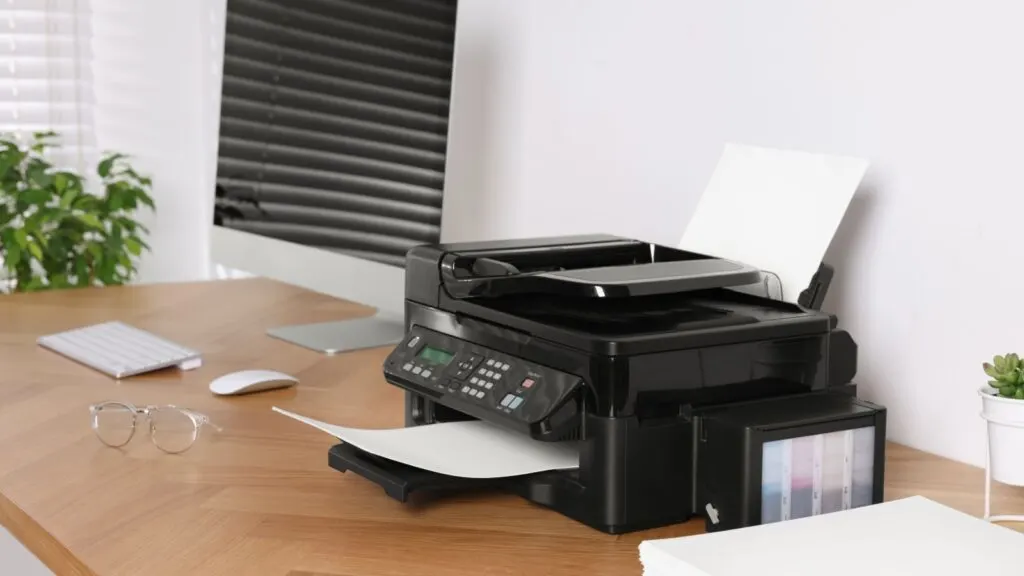
Having reliable technology is essential for a smooth workflow. Invest in a high-quality computer, a fast internet connection, and peripherals like a good mouse and keyboard. These tools can significantly impact your efficiency and productivity.
Regularly update your software and hardware to avoid any disruptions. Consider additional accessories like a second monitor or noise-canceling headphones to further improve your setup. Quality tech tools can streamline your tasks and reduce frustration.
4. Organize Cables And Wires
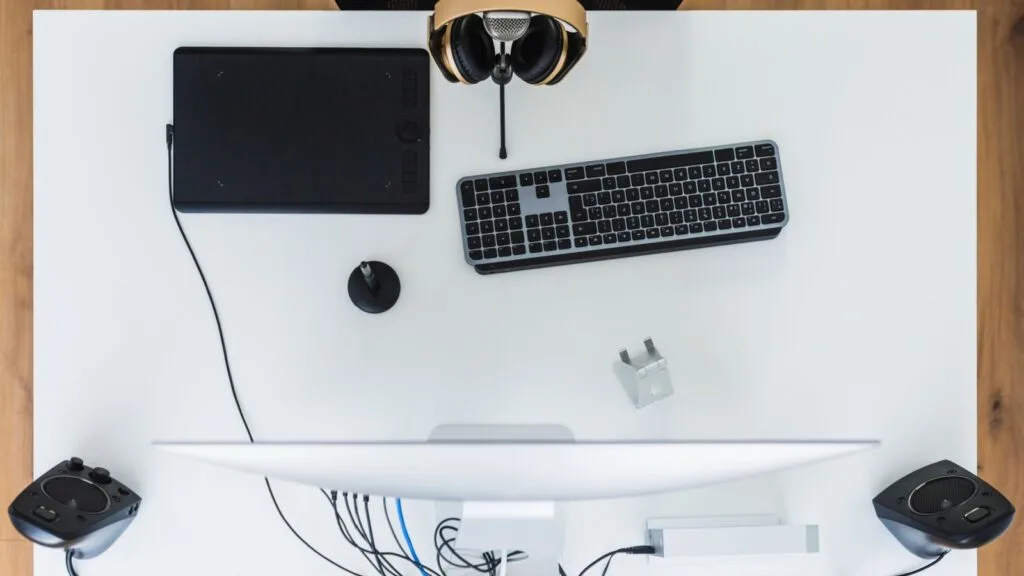
A clutter-free workspace is not only visually pleasing but also enhances productivity. Use cable organizers or clips to manage and hide wires and cables. This helps prevent tangling and keeps your desk looking tidy.
Labeling your cables can also be beneficial, making it easier to identify and troubleshoot any issues. Additionally, consider wireless options for your peripherals to reduce the number of cables on your desk. A clean workspace can help you focus better and reduce stress.
5. Create A Dedicated Workspace
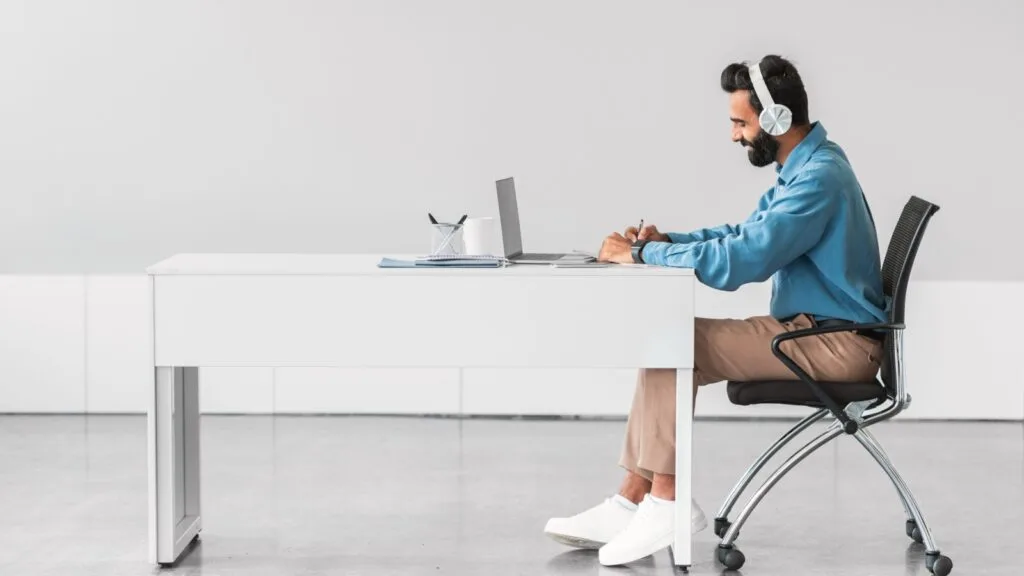
Having a dedicated area for work can help separate your professional and personal life. Choose a quiet, low-traffic area in your home where you can set up your office. This helps minimize distractions and allows you to focus on your tasks.
Make sure this space is exclusively for work-related activities. Avoid using it for leisure or other purposes to maintain a clear boundary between work and personal time. A dedicated workspace can improve your work-life balance and productivity.
6. Optimize Your Desk Layout

An efficient desk layout can significantly impact your workflow. Keep frequently used items within easy reach to avoid unnecessary movements. Use organizers, trays, and shelves to keep your desk neat.
Arrange your monitor at eye level to reduce neck strain. Place your keyboard and mouse at a comfortable distance to maintain proper posture. A well-organized desk can make your workday more efficient and comfortable.
7. Personalize Your Space

Adding personal touches to your workspace can make it more enjoyable and motivating. Decorate with items that inspire you, such as photos, plants, or artwork. This can create a more inviting and pleasant environment.
However, avoid cluttering your desk with too many decorations. Keep it balanced to maintain a professional atmosphere. Personalizing your workspace can boost your mood and creativity.
8. Ensure Good Air Quality
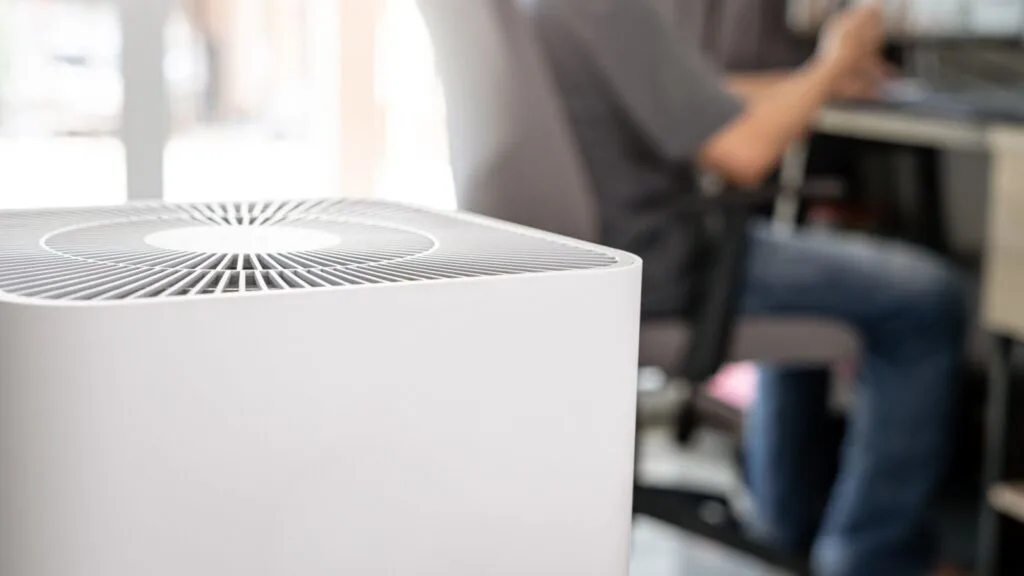
Maintaining good air quality is essential for a healthy workspace. Ensure your home office is well-ventilated by opening windows or using an air purifier. Poor air quality can lead to headaches, fatigue, and reduced productivity.
Avoid using harsh cleaning products that can contribute to indoor air pollution. Instead, opt for natural or eco-friendly options. Keeping the air clean and fresh can enhance your overall well-being and efficiency.
9. Implement A Filing System

A good filing system is crucial for keeping your documents organized and easily accessible. Use folders, binders, or filing cabinets to store your papers. Label everything clearly to quickly find what you need.
Digitize important documents to reduce paper clutter. Use cloud storage solutions for easy access and backup. An organized filing system can save you time and reduce stress.
10. Minimize Distractions

Identify potential distractions in your home office and find ways to minimize them. This could include noise from other parts of the house, notifications from your phone, or visual clutter. Use noise-canceling headphones or white noise machines to block out unwanted sounds.
Set boundaries with family members or roommates to ensure they respect your work time. Keep your workspace clean and free from unnecessary items. Minimizing distractions can help you stay focused and productive.
11. Use Task Lighting
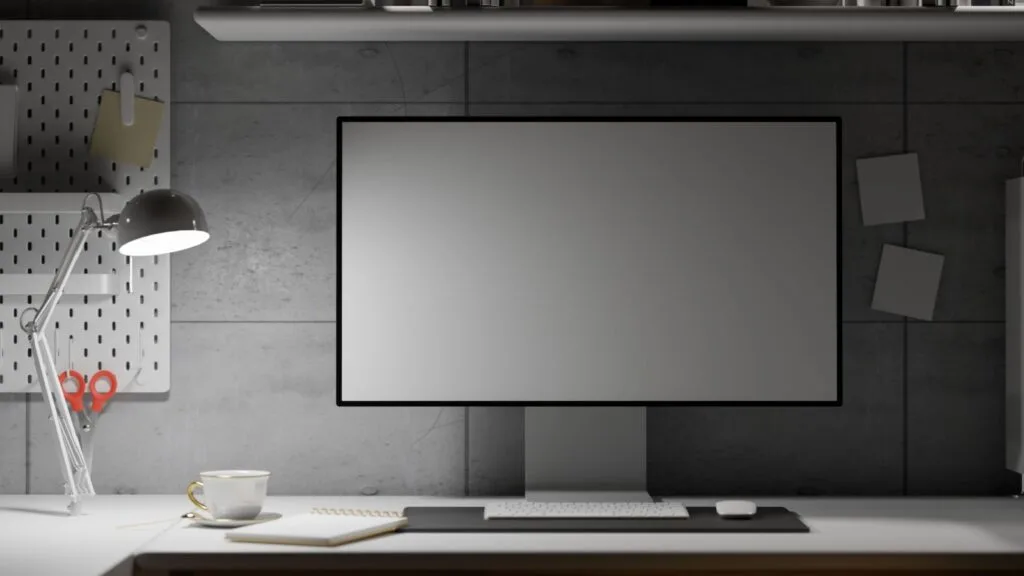
Proper lighting is essential for a comfortable and productive workspace. In addition to natural light, use task lighting to illuminate specific areas of your desk. A good desk lamp can reduce eye strain and improve your focus.
Choose a lamp with adjustable brightness and color temperature settings. Position it to avoid glare on your screen. Task lighting can enhance your working conditions and prevent discomfort.
12. Incorporate Breaks Into Your Schedule

Taking regular breaks is essential for maintaining productivity and well-being. Use techniques like the Pomodoro method, which involves working for 25 minutes and then taking a 5-minute break. This can help prevent burnout and keep you focused.
During breaks, stand up, stretch, or take a short walk. Avoid spending break time on your computer or phone to give your eyes a rest. Incorporating breaks into your schedule can boost your energy and concentration.
13. Set Up A Backup System
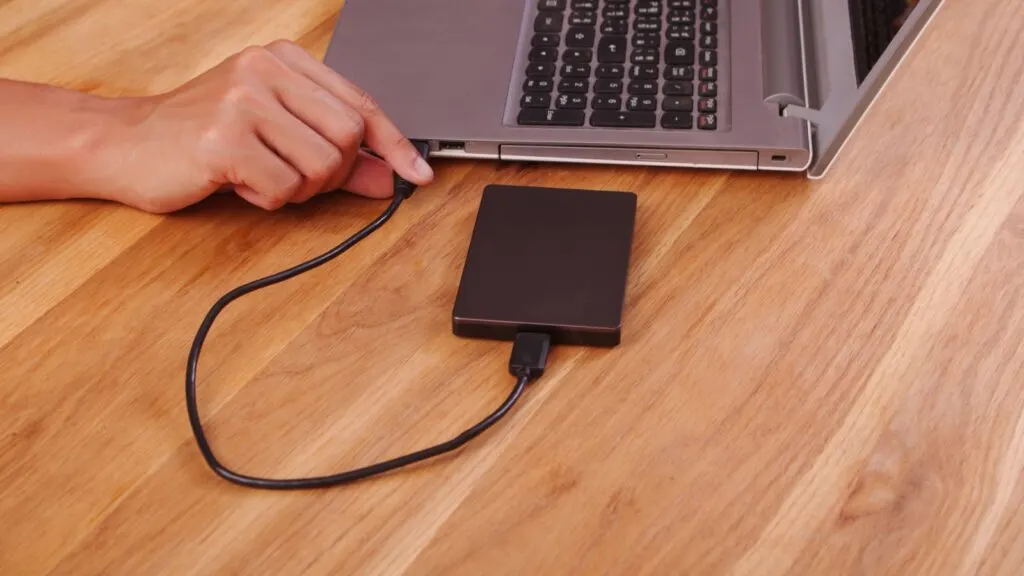
Protecting your data is crucial, especially when working from home. Set up a reliable backup system to avoid losing important files. Use external hard drives or cloud storage solutions for regular backups.
Automate the backup process to ensure it happens regularly without manual intervention. Regularly check your backups to make sure they are functioning correctly. A backup system can give you peace of mind and protect your work.
14. Monitor Your Health

Working from home can sometimes lead to neglecting your health. Pay attention to your physical and mental well-being. Stay hydrated, eat healthy snacks, and take regular breaks to move around.
Consider using a standing desk or taking short exercise breaks throughout the day. Monitor your mental health and take steps to reduce stress, such as practicing mindfulness or talking to a therapist. Prioritizing your health can improve your productivity and quality of life.
